- 当前位置:
- 首页>
- 活动>
- ������������
������������
CCG持续关注国际关系议题,推动中国与全球化的发展,积极开展国际交流,充分发挥智库“二轨外交”作用,在巴黎和平论坛、达沃斯世界经济论坛、慕尼黑安全会议等重要国际政策与意见交流平台上组织分论坛、边会、圆桌会议、晚宴等活动,促进国际政商学界对话,凝聚共识;CCG积极与各国政界、智库界、工商界开展“二轨外交”活动,每年常态化赴多国调研与交流,促进中外关系攸关方互动,保持与多国政策圈层的沟通渠道。
-
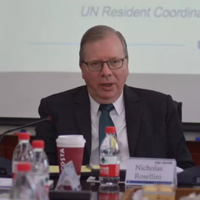
【中国新闻网】联合国官员:“一带一路”倡议或成加速实现可持续发展目标的平台
联合国驻华协调员、联合国开发计划署驻华代表罗世礼(Nicholas Rosellini)近日在北京表示,“一带一路”倡议或可成为加速实现联合国2030年可持续发展目标的平台。 受全球化智库(CCG)邀请,罗世礼14日围绕“‘一带一路’倡议与南南合作下,中国对2030年可持续发展目标的作用”一题发表演讲。 联合国开发计划署致力于推动人类的可持续发展。该国际组织利用其全球发展经验,支持中国制定应对发展挑战的解决之道,并为中国开展南南合作和参与全球发展提供协助。罗世礼自2016年10月起担任联合国驻华协调员、联合国开发计划署驻华代表。 “因其在全球经济治理领域的崛起,中国在促进南南合作中的开拓性作用非常重要。”罗世礼表示,过去的40年间,中国提供了大量的海外援助。这只是中国为国际发展合作做出贡献的其中一部分。 在他看来,“一带一路”倡议进一步增强了国际发展合作的势头。2016年9月,联合国开发计划署成为第一个与中国政府签署政府间共建“一带一路”谅解备忘录的国际组织。罗世礼认为,通过实体、社会经济、数字金融的互联互通,“一带一路”倡议将实现区域的一体化与发展,为国际发展合作增添动力。 “更重要的是,如果实施得当,‘一带一路’倡议可能为多项联合国2030年可持续发展目标做出贡献。”罗世礼说。 联合国2030年可持续发展目标旨在从2015年到2030年间,以综合方式彻底解决社会、经济和环境三个维度的发展问题,转向可持续发展道路,勾画出全球可持续发展的蓝图。 值得注意的是,“消除贫困(No Poverty)”排在17个可持续发展目标的首位,而中国在此方面的成绩有目共睹。中共十八大以来的五年,中国有六千多万贫困人口稳定脱贫,贫困发生率从10.2%下降到4%以下。中国的脱贫攻坚战取得决定性进展。 “我们看到了数年间中国脱贫人口的巨大数量,现在中国又确立了到2020年消除贫困的目标。”演讲结束后,罗世礼在接受中新社记者采访时说,中国的减贫工作及其工业化进程和经济发展的成就,体现了国家政策如何助力推进这些举措,及项目的筹备、实施与优化。这既与其他国家的发展相关,也引起他们的兴趣和关注,可以成为南南合作的基础。 近年来,联合国开发计划署与中国及有关国家开展三方合作,以协调发展援助的供应与需求。罗世礼表示,联合国开发计划署可以帮助中国传播实践经验,并使其适应他国的自身需要。“这对于南南合作而言,意义重大。” 无论是“一带一路”倡议,还是推动构建新型国际关系、推动构建人类命运共同体,中国近年来提出了一系列涉及国际发展合作的理念与倡议。罗世礼认为,中国的这些理念与联合国2030年可持续发展议程存在许多对接的机会。“观察中国的国际角色,中国正在助力可持续发展目标的实现。某种程度上讲,‘一带一路’倡议或可成为加速实现可持续发展目标的平台”。文章选自中国新闻网,2018年6月15日
2018年6月20日 -
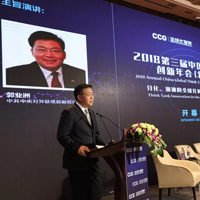
【中国社会科学网】加快全球化新时代智库创新步伐
6月17日,由全球化智库(CCG)和美国宾夕法尼亚大学智库项目(TTCSP)共同主办、上海社会科学院智库研究中心和南京大学智库研究与评价中心协办的2018中国全球智库创新年会在京举行,来自世界各国智库的优秀代表围绕“分化、加速的全球化时代与智库创新”的主题进行了深入的研讨。全球化智库(CCG)理事长王辉耀主持开幕式。 中共中央对外联络部副部长郭业洲表示,当今时代世界全球化正向纵深发展,世界各国利益深度互联,安全稳定乃是人心所向,合作共赢是大势所趋,世界人民对美好生活的向往也从来没有像今天如此强烈。与此同时,经济全球化的负面影响也正在显现,发展不平衡、不协调、不可持续的问题也更加突出,民粹主义、保护主义、单边主义等思潮正在泛起,逆全球化思潮暗流涌动。国际秩序和全球治理的改革发展阻力重重,恐怖主义、气候变化、网络安全、流行疾病等全球性的挑战此起彼伏,世界安全还面临着较大的不确定性。以互联网为核心的新一轮科技和产业革命蓄势待发,云计算、大数据、人工智能等新技术在深刻地改写着人类生产生活的方程式。 郭业洲认为,智库是现代国家治理体系的重要组成部分,在经济社会发展当中扮演重要的角色,对于推动政策的形成、社会的进步承担着重要的责任。针对分化、加速的全球化时代背景下智库的使命,郭业洲分享了自己的一些看法,首先,智库要做全球化健康发展的引领者。智库应当勇立时代潮头,胸怀天下大势,探索应对全球化所带来的问题和挑战的方式、方法,推动全球化朝着更加开放、包容、均衡、普惠的方向发展,引领各方力量共同建设一个更加美好的世界;其次,智库要做世界和平的维护者。智库应计天下之大利、谋众生之福祉,超越你输我赢的旧思维,摒弃地缘战略的小算盘,为全人类共同、可持续的未来出谋划策,为世界和平与安宁注入更多的正能量;再者,智库要做新工业革命的推动者。智库应该积极行动起来,共同做发展机遇的预见者、潜在问题的预警者,通过自身的实践探索,让新工业革命更好地服务于人类;最后,智库要做文明交流互鉴的实践者。智库应该积极倡导平等、互鉴、对话、包容的文明观,推动不同文明、不同发展模式交流对话,在竞争当中取长补短,在交流互鉴中共同发展,让文明交流互鉴成为增进各国人民友谊的桥梁,推动人类社会进步的动力,维护世界和平的纽带。 全球化智库(CCG)特邀高级研究员、中国人民大学新闻学教授贾文山则提醒,颠覆性科技存在着颠覆认知体系的可能性,因此,智库应当从哲学或者元哲学的角度进行问题研究。
2018年6月20日 -
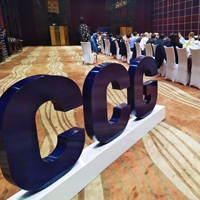
【国际经贸在线】中美贸易争端中的利与理
6月17日晚,应全球化智库理事长王辉耀和秘书长苗绿邀请,美国哈德逊研究所中国战略中心主任Michael Pillsbury (白邦瑞)、美国传统基金会国际经贸研究中心主任美国驻联合国原大使Terry Miller、中国美国商会主席William Zarit(蔡瑞德)等人参加了中美关系晚宴研讨会,约五十名中美前官员、学者、企业家参加了讨论,数名来自英国、法国、阿尔巴尼亚等国的外交官与学者也参加了晚宴研讨会。整个晚宴研讨会是在友好与坦诚的气氛中进行的,主持人田嶶的主持让活动既内容紧凑又气氛轻松。Terry Miller和白邦瑞均为对共和党政府有重要影响的前官员和智库人士,他们在晚宴中做了主旨发言。Terry Miller的演讲一开始就肯定全球贫困人口的大幅度减少以及中国在其中所起的作用,同时也为美方的做法进行了辩护。白邦瑞是著名的美国鹰派,他讲得比较有意思,其中有一段他希望中国的智库不要宣传美国威胁论。一位英国的学者回忆了一战前的历史,指出目前情况的危险。William Zarit(蔡瑞德)表示美国很多企业也认同对中国的经济干预措施应该采用强硬立场,但是对于使用关税措施有争议,美国不要把中国逼到墙角。有两位中国学者提到了WTO规则。白邦瑞表示,美方这次主要关注的一些问题,诸如投资政策与壁垒、中国制造2025下的产业补贴,不是世贸组织所管辖的内容,所以不好通过世贸组织解决。他说,莱特西泽也说了,世贸组织不够“大”。但是,白邦瑞回避了一个问题,就是美国要使用的歧视性关税是世贸组织管辖的对象。在这次中美贸易争端中,对于中方来讲,哪些是可以让的,哪些是不能让的?中方政府表态,有时态度强硬,有时态度灵活,强硬针对的是什么,灵活针对的是什么?一位权威资深贸易专家曾经表示:让利不让理。我个人非常同意这位前辈的看法,这里我谈谈我自己对利和理的理解。利是什么。“利”首先是市场利益,给美方开更大的市场,进口更多美方产品,这个利益是可以让的。贸易的利益经常并非是你多我少,对这些利益的让与并不一定会损害我们的利益。贸易扩大是双赢的。“利”其次是结构性改革的利。中国可以也应该进一步深化改革。在以往的改革进程中,WTO规则对中国的改革影响很大。某些WTO规则没有约束的政府干预手段以往被作为依据WTO规则来使用的手段,在WTO层面没有问题,在双边层面产生了问题。这些东西我个人认为有一部分也是应该调整的。我们的专利法符合WTO规则,但现实中侵权行为大量存在,进一步提高保护标准特别是违法成本也是应该的。这既算是谈判中让的利,也符合中国的利益。让利的底线是发展权包括制定发展战略的权利,但制定的发展战略中的具体内容是值得全面审视的。“利”还包括未来全球经济治理的利。在现有全球经济治理体系中,大量领域存在空白,美国认为他原来主导建立的规则不完善了,因此他在指责中国的同时需要同时指责世界贸易组织。23年来WTO谈判成果确实太少,WTO确实需要与时俱进。对于我们没有充分研究存在各种担心的谈判议题,我个人认为可以谈,可以积极谈,在谈判中学习,在谈判中研究。建立新规则符合美国的利益,也符合中国的利益。理是什么?“理”就是现有多边贸易体制的最根本原则:最惠国待遇原则。最惠国待遇是现代国际经贸关系的基石,是所有具有正常贸易关系的国家和地区相互给予的待遇。它被1994年关贸总协定列为第一条。最惠国待遇,美国将其称为正常贸易关系待遇。在上个世纪中国改革开放之后,中美基于双边最惠国待遇发展贸易关系,中国加入世贸组织之后,中美基于多边最惠国待遇发展贸易关系。美方一旦实施301歧视性关税措施,世贸组织的基本原则将受到其成立以来最大的冲击,中美贸易关系的基石也就动摇了,中美之间的正常贸易关系也就停止了。232关税的性质是滥用国家安全例外,但没有根本冲击WTO的最惠国待遇原则。而301关税则是动摇了WTO的基石,两者具有根本性质的差别。白邦瑞在17日的发言中也提到:我理解中国担心接受了美国的条件之后,其他国家也会提出同样要求,这样最惠国待遇就成了中国的噩梦(nightmare)。实际上,白邦瑞的讲话有误解的成分,也有正确的成分。说是误解,是因为中国不可能在接受对美国的开放的同时,而不对其他国家开放。基于WTO的最惠国待遇原则,中国在谈判中答应向美国开放的领域,必然是准备同时向其他国家开放的领域。除非中美同意建立双边自贸区,依据WTO规则合法地作为最惠国待遇的例外,而这一点是至少两个重要的中方智库都提出过的想法。因此,在这种情况下,中方并不会认为最惠国待遇是一个障碍或者噩梦。说是有正确的成分,是因为美方提出的一个要求触碰了中国“不让理”的红线。美方要求中国承认美国对中国进行关税制裁的权利。也就是说,美国破坏最惠国待遇原则,停止给予中国正常贸易关系待遇,中方应该接受,不能报复。我们可以设想一下,中国接受了这个要求之后,等于中国接受了对美国的片面最惠国待遇要求,也就是美国可以歧视中国,中国不能歧视美国。由于中国对其他WTO成员都有最惠国待遇义务,中国接受的这个条件也可能被解释为应该适用于其他世贸组织成员,也就是中国应该给予所有世贸成员片面最惠国待遇。那么,最惠国待遇就真正成为了中国的噩梦。因为中国在给予其他成员最惠国待遇的同时丧失了自己享有的最惠国待遇。中方反制是迫不得已的。中方态度灵活的地方是针对让利,中方态度强硬的地方是针对不让理。这两方面一定要分清楚。特朗普加2000亿产品税以致4000亿产品税的白宫声明有意地把中国坚守WTO底线不让理扭曲为在谈判中不让利,而我们读者往往也不太容易区分这两者之间的差别。然而,美国是否一定要打垮WTO?在这一点上,我与国内不少同行有不同的看法。白邦瑞提出,中国智库不要过分宣传美国威胁论。对这一点我是有一定认同的,我认为我们也不要过早认定美国一定要打垮WTO。随着中国产业升级,中美重叠竞争性产业增多,产业内贸易摩擦加剧成为常态,这一点我认为确实是一个长期趋势。但是,中美今后在知识产权保护、环境保护、投资保护与自由化等全球经济治理重大问题上的立场是会日益接近的,这些领域规则的强化对中国的好处是越来越多的。中美双方是国际经贸规则最大的需求方,谈规则也是今后的常态。以谈规则遏制摩擦是今后长期的任务。在今年3月美国总统向国会提交的贸易政策报告中,美国明确表示希望改革世贸组织同时在世贸组织中继续发挥活跃的作用。美方的要求固然是基于自身的利益,但是当前WTO确实需要改革。我个人认为,中方可以让的利包括同意发起改革WTO的谈判,让世纪之战变为世纪谈判。我们也应在各种场合告诉美方,WTO的改革必须基于战后国际贸易的重要基石,即最惠国待遇原则。破坏这一基石将大大延缓WTO改革的进程。中方让利的空间是很大的,改革开放的决心是很大的。到目前我们也不能做出美国要彻底打垮WTO的判断。因此,在需要对严峻形势和各种可能做好准备的同时,准备打,更要准备谈。无论出现多少波折,我仍然认为中美双方能够达成初步妥协。之后经过长期谈判和磨合,一个世界市场经济体制终将形成。
2018年6月20日 -

【China Daily】 Shanghai spirit
Qingdao summit primes SCO to play more substantial role on world stagePresident Xi Jinping has called for a more open world economy, labeling moves toward protectionism as "self-centered and short-sighted".Xi re-emphasized his commitment to globalization in his keynote speech to the plenary session of the Shanghai Cooperation Organization Summit in Qingdao, Shandong province, on June 10."We should uphold WTO rules and support the multilateral trading system so as to build an open world economy," he said.The president said the SCO, which was formed in 2001 and is based on the concept of the "Shanghai Spirit", the organization’s underlying principle, was a model of what countries could do if they worked together."The ’Shanghai Spirit’, transcending outdated concepts such as clash of civilizations, Cold War and zero-sum mentality, has opened a new chapter in the history of international relations, and gained increasing endorsement of the international community," he said.Qingdao was the first SCO summit since June last year in Astana, Kazakhstan, when India and Pakistan became full members, bringing more than 1.5 billion additional people to the grouping.These nations have added a South Asian dimension to the organization, whose full members before the two new entries were Russia, Kazakhstan, Kyrgyzstan, Tajikistan and Uzbekistan, in addition to China.The SCO is now a formidable organization, with its full members taking in around half of the world’s population and a quarter of global GDP. It also has four observer members (Afghanistan, Belarus, Iran and Mongolia) as well as six dialogue partners (Azerbaijan, Armenia, Cambodia, Nepal, Turkey and Sri Lanka).Among the key announcements at this year’s summit was a commitment by China to establish a 30 billion yuan ($4.7 billion; 4 billion euros; £3.5 billion) special lending facility within the framework of the Interbank Consortium of the SCO.The facility is likely to dovetail with China’s Belt and Road Initiative and provide funding for infrastructure and investment projects in the region.China also committed to train 2,000 law enforcement officers within the SCO member countries over the next three years to strengthen law enforcement. It also will provide 3,000 training opportunities for SCO member countries.Leaders of the SCO members signed 23 cooperative documents covering everything from security and politics to economics and culture.Chinese Foreign Minister Wang Yi said the summit, the first to be held in China outside of either Shanghai or Beijing, was a "new landmark" in the organization’s history, adding that it had concluded with "the most fruitful outcomes".Many observers at the summit believed that one of the big differences between this summit and previous ones was that the organization has broadened its scope beyond focusing primarily on security issues.He Weiwen, a former economic and commercial counselor in the Chinese consulates general in San Francisco and New York, says the SCO has set itself a bold agenda."In the past, the SCO has been focused mostly on security in Central Asia, but at this summit there was a focus also on global governance issues, the multilateral trading system, which is facing severe challenges currently with the threat of protectionism, and economic issues generally," he says.Khalid Taimur Akram, executive director of the Center for Global and Strategic Studies based in Islamabad, Pakistan, also says it was an evolution."To date, the SCO has largely concentrated on regional nontraditional security governance and specifically its fight against regional terrorism, ethnic separatism and regional extremism," he says."But the SCO Charter sets out a broad range of other objectives and areas of cooperation, which go far beyond security concerns, and this has great potential for further regional integration."Some also contrasted the summit, which endorsed the China-sponsored initiative of building a community of a shared future for mankind, with the G7 meeting of developed nations, which took place in Quebec on June 8 and 9.Former counselor He, also co-director of the China-US/EU Study Center at the China Association of International Trade, says the obvious difference was the mutual respect the SCO members had for each other."All the members have different positions and values, yet they respect each other and seek to work together to achieve something of mutual benefit. On that basis, we have the harmony of good neighbors," he says."This was not the case with the G7. (US President Donald) Trump hasn’t respected multilateral trade rules and has imposed tariffs unilaterally, taking no account of others."Jon R. Taylor, professor of political science at the University of St. Thomas in Houston, Texas, also believes there was a sharp contrast between the outcomes at Qingdao and Quebec."While Xi projected calm, creative statesmanship at the summit and was able to project a win-win consensus, by contrast Trump looked like a man out of his league," he says.He adds that Trump was "stuck in the failed economic policies of the 1920s and happy to reject the West’s long-term consensus".Luigi Gambardella, president of ChinaEU, a Brussels-based internet and telecommunications platform for business leaders, agrees that the summit delivered a united message."The summit produced a success in demonstrating the unity among member countries as well as leaders’ will and commitment in multilateralism and cooperation," he says.Wang Huiyao, president of the Centre for China and Globalization (CCG), a leading Beijing-based think tank, believes there is now a real synergy between the SCO and China’s Belt and Road Initiative."I think this gives the SCO real future potential, because China’s Belt and Road Initiative has this large involvement with Central Asia. They go hand in hand, and if China can get SCO countries to cooperate and work with the Belt and Road, it is a very important path for future success and one that could transform the whole region," he says.Ivona Ladjevac, head of the regional center for the Belt and Road Initiative at the Institute of International Politics and Economics in Belgrade, Serbia, also believes this to be the case."The importance and value of the SCO is recognized by China in the scope of the Belt and Road Initiative. Namely, not only that the SCO guarantees a secure environment, but it also guarantees smooth economic development," she says.Xi, at a banquet on the eve of the summit, linked the "Shanghai Spirit" to Confucianism, particularly relevant to this year’s meeting since Shandong, where it was being held, was the birthplace of the great Chinese philosopher.He said there was much in common between Confucianism, with its emphasis on unity and harmony, and the values of the SCO, which are based on mutual trust, mutual benefit, equality, consultation, respect for diversity of civilizations and the pursuit of common development.Wang Huiyao, also a counselor to the State Council, China’s Cabinet, says the summit also gave "Shanghai Spirit" a new meaning."This is a really big idea, and it has been emboldened by this summit. Building a community of a shared future for mankind, which has been ratified by all the members, will be a path to future success for the whole region," he says.The summit set a very strong platform for the SCO to move on to play a more substantial role on the world stage.B.R. Deepak, a professor at the Centre for Chinese and South East Asian Studies at Jawaharlal Nehru University in New Delhi, says the SCO is now one of the most successful multilateral organizations in the world and is a new model for regional economic and security cooperation."With India and China as its members, the contribution they are making together with other members to global economic growth and prosperity is significant," he says."The inclusion of more members, and perhaps further expansion into the Middle East and Europe, will turn the bloc into a real Eurasian organization."Former trade diplomat He says, however, that the SCO was not trying to rival the G7 - even though its members now had a much larger population."The SCO is not about challenging the existing world order and, indeed, it has a cooperative relationship with both the World Bank and the International Monetary Fund," he says."There is no intention of rivaling the G7, since its members still lead the world in terms of technology, the size of their economics and their strength in finance. We need to work with them."From China Daily,2018-6-17
2018年6月19日 -
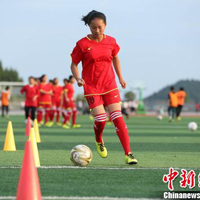
【Ecns.cn】 The China story behind a World Cup without Chinese players
Mo Qiu, from Guizhou Province, a flag-bearer of the opening ceremony of 2018 World Cup, practices in the football field. (Photo/China News Service)(ECNS) - Though there is no Chinese national team at the 2018 World Cup in Russia, a great variety of Chinese elements are part of the sporting event, also one of the world’s biggest marketing opportunities.Without Chinese players on the field, the World Cup will have nine foreign players who also compete in the Chinese Super League, the largest number ever. Renato Augusto, a Brazilian professional footballer, plays as a midfielder for Beijing Guoan. Javier Alejandro Mascherano of Argentina, Jose Fonte of Portugal, Axel Witsel of Belgium and John Obi Mikel of Nigeria all play for various teams in the Chinese Super League.Compared with footballers who played in China and served for their national teams in the past World Cup, those players seem to be more competitive and powerful, an indication of the growing appeal of the Chinese Super League.Chinese fans are also expected to be a major feature in Russia’s World Cup. According to FIFA data, Chinese fans purchased 40,251 out of the 2,403,116 tickets sold, ranking ninth in the country list. Russia estimates that the number of tickets purchased by Chinese fans will reach 60,000.According to Ctrip, China’s leading online travel service provider, hotel reservations in major cities in Russia have increased by more than 50 percent year-on-year due to the World Cup and air ticket reservations for major game cities increased by 40 percent during the match period.Russian authorities predict about 100,000 Chinese fans will fly in to watch matches and travel during the World Cup. Moscow will also open a "China House" to welcome fans.There are also seven World Cup sponsors from China from fields ranging from real estate to dairy products, home appliances, mobile phones, electric cars, apparel and virtual reality technology.Chinese enterprises are also eager to undertake foreign investment and acquisitions to upgrade brands, throwing huge sums of money into World Cup sponsorships amid effort to go global, according to a report by the think-tank Center for China and Globalization.In addition to Chinese sponsors, the World Cup has more made in China products too. A Chinese company manufactures the mascot Zabivaka and is exclusively responsible for pricing and sales in countries other than Russia. Commemorative coins for the event are made by Nanjing Mint.Chinese companies also provided 67 elevators at two new venues for the event. Central China’s Hubei Province will also ship 100,000 crayfish in several flavors to Russia.From Ecns.cn,2018-6-14
2018年6月19日 -
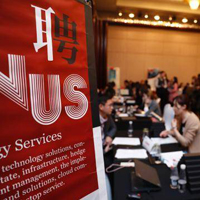
【Ecns.cn】Overseas education with local support may reduce career barriers
(ECNS) - Educational experts said that cooperating with well-known foreign universities in running schools may be a good way to train talent that fits well into China’s growth.Data shows that the number of returned students reached 480,900 in 2017, up by 11.19 percent from 2016. Between 1978 and 2017, 83.73 percent of overseas Chinese students, totaling 3.132 million, came back after completing their studies, according to the Ministry of Education.But a report by the Center for China and Globalization (CCG) said only 32.7 percent of returnees reintegrated into society rapidly, while 54.4 percent gradually integrated and 12.9 percent have been struggling to fit in. More than 60 percent of returnees encountered problems in adapting to China’s domestic job market.Some experts said the problems come from cultural differences at home and abroad, and others believe the returnees do not understand the domestic market environment and the needs of enterprises.One possible solution is to have joint education programs with foreign universities and offer customized training for certain professions, said Guo Lei, executive dean of the Pixseed Digital Art Education Base, a talent incubator focusing on digital art fields such as games and animation.Pixseed has cooperated with Abertay University to offer a five-month Master of Professional Practice in Games Development Orientation Programme (MPPOP), which prepares Chinese students to study at the UK university for one year.This new educational model allows students to understand the status of the industry from the very beginning and then have a sound career plan. Overseas learning not only provides professional knowledge and customized courses but also work internship opportunities at top gaming companies.From Ecns.cn, 2018-6-14
2018年6月19日 -
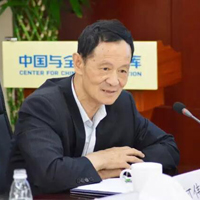
【CGTN】What does the unpleasant end of G7 reflect?
Editor’s note: This article is based on an interview with He Weiwen, a senior fellow at the Center for China and Globalization(CCG).Trump has again grabbed the world’s attention as the US president has retracted his endorsement of the G7 joint statement, after the summit ended.The reverse of his attitude is triggered by a statement that Canadian Prime Minister Justin Trudeau made during a news conference, saying that the US’ imposing tariffs in the name of national security is "kind of insulting."It seems that the seed of dissenting opinion between the US and the other G7 countries has been planted.The US and the G7An astonishing decision, imposing tariffs on imported steel and aluminum from the EU, Canada and Mexico, made by the Washington DC has aroused criticism around the globe, including member countries of G7.Under the environment of a global trade war between the US and the EU, trade issues have obviously become the pivotal concern during the summit. And not surprisingly, the US and the G7 share a confrontational stance.However, "this does not represent a breakdown of the relation between the two sides", says He Weiwen, a senior fellow at the Center for China and Globalization, "and the US is still part of the G7."Economic issues or trade issues, to be exact, is only one of the main issues on which the G7 Summit focuses. Others include military issues, climate issues, etc.June 9, 2018: US President Donald Trump speaks to reporters, during the G7 Summit in La Malbaie, Quebec, Canada./ VCG PhotoIn terms of the trade war, the US is not likely to turn its back on the EU. According to He, the status of the US being an ally of the EU will not change as, again, these two sides only have disagreements in terms of trade.At the past G7 Summits, the US has kept a low-profile image without impulsive decisions. But, since President Trump put forward the "American First" foreign policy, the US appears to be not only high-profile, but more proactive.For example, an agreement on addressing challenges that was affecting the growth of the world economy was reached at the 2016 G7 Summit. Likewise, leaders at the 2017 G7 Summit emphasized common endeavors to end the Syrian crisis, to fulfill the UN mission in Libya and to reduce the presence of ISIS in Syria and Iraq.However, Donald Trump didn’t agree with the final section of statement, of the G7 Summit this year, about commerce, and criticized his trade allies for treating the US unfairly. He even tweeted that the America is considering tariffs on imported automobiles.The G7 and the SCOCompared with another international-level summit taken place in Qingdao, China, the Shanghai Cooperation Organization, the contrast is striking as there are no such contradictions in the SCO.During the SCO, Chinese President Xi Jinping has expressed that members of the SCO have unanimously opposed protectionism, the statement of which has echoed the content in the G7 communique. This means that free trade is in accordance with globalization and is acknowledged by most of countries.June 10, 2018: Chinese President Xi Jinping delivered a speech during the 18th Meeting of the Council of Heads of Member States of the Shanghai Cooperation Organization (SCO) in Qingdao, east China’s Shandong Province./ Xinhua PhotoNevertheless, the fact that Trump still obstinately sticks to his own intentions may bring consequences.He Weiwen says "if the country continues this way, the US would become increasingly isolated as the globalization is a tendency of time. But, meanwhile, as a superpower in the world, the power of the US cannot be underestimated because it may bring risks to multi-lateral trade".It is intriguing to notice a proposal made by Donald Trump to appeal to Russia to rejoin the G7. But Russian President Vladimir Putin shows no interest as he states, while at the SCO, that Russia has never decided to leave the G7, but it’s the truth that the economic vitality of the SCO has exceeded that of the G7.Under such a background, Russia has obviously taken up a strategically active position, and Putin is more willing to be a participant of the SCO.As He Weiwen says, the Russian president recognizes the SCO’s adherence to the WTO rules, globalization and trade liberalization and deems that achievements could be fruitful through cooperating with SCO members.He WeiwenSenior Fellow at the Center for China and Globalization(CCG)He Weiwen is a senior fellow at the Center for China and Globalization(CCG). He also serves as co-director of the China-U.S./EU Study Center at the China Association of International Trade. Previously, he served as the former economic and commercial counselor of Chinese Consulates General in San Francisco and New York.From CGTN,2018-6-10
2018年6月19日